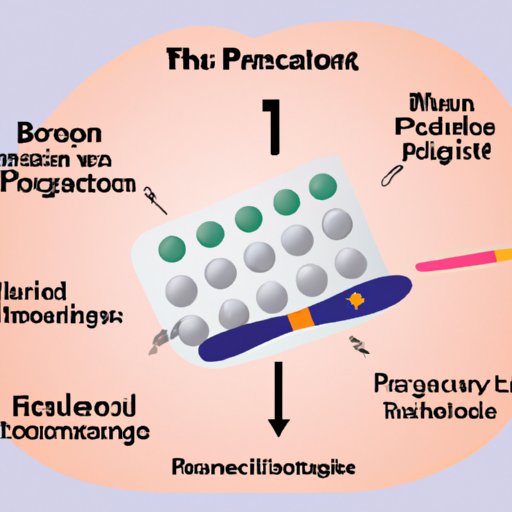Can you get pregnant while on birth control?
Birth control pills are one of the most popular forms of contraception worldwide. However, despite the widespread use of birth control pills, many women still get pregnant while taking them. This can be a confusing and frustrating experience for anyone trying to prevent pregnancy. In this article, we will explore the reasons behind pregnancy while on birth control, various forms of birth control, their effectiveness, and what to do if you find yourself pregnant despite taking birth control pills.
Pros and cons of birth control methods
There are several birth control methods available for women including hormonal and non-hormonal methods. Hormonal birth control methods include pills, implants, injections, patches, and vaginal rings. Non-hormonal birth control methods include condoms, diaphragms, and intrauterine devices (IUDs). Each method has its own benefits and drawbacks. Hormonal methods can offer more effective pregnancy prevention, while non-hormonal methods may have fewer side effects. Ultimately, the best birth control method for each individual will depend on their specific health needs and lifestyle.
The science behind birth control pills
Birth control pills contain synthetic hormones that prevent ovulation by blocking the release of eggs from the ovaries. The hormones in birth control pills also thicken cervical mucus, making it harder for sperm to reach the egg. When taken correctly, birth control pills are up to 99% effective at preventing pregnancy. However, factors such as missed or inconsistent pill-taking, certain medications, and illnesses can decrease the effectiveness of birth control pills.
Common mistakes made while using birth control
One of the most common mistakes made while taking birth control pills is forgetting to take a pill. It is recommended to take the pill at the same time every day to maximize its effectiveness. Another common mistake is not taking the pill correctly. The pill should be swallowed whole with water and not chewed or broken. Medications and illnesses can also affect how well the pill works. Certain antibiotics, antifungal drugs, and herbal supplements can reduce the effectiveness of birth control pills. If you are taking any medication or have any medical condition, be sure to discuss it with your healthcare provider before starting birth control pills.

Reasons behind pregnancy while on birth control
While birth control pills are highly effective, there is still a chance of getting pregnant while taking them. The most common reason is missed or inconsistent pill-taking. The effectiveness of birth control pills can be reduced if a pill is missed or taken late. Other factors that can affect the effectiveness of birth control pills include certain medications, diarrhea, and vomiting. In rare cases, a woman may become pregnant due to the failure of the birth control pill to prevent ovulation, which is known as a breakthrough ovulation.
Types of birth control pills and their effectiveness
There are two main types of birth control pills: combination pills and progestin-only pills. Combination pills contain both estrogen and progestin hormones, while progestin-only pills contain only progestin hormone. Combination pills are more commonly used and are highly effective when taken correctly. Progestin-only pills are slightly less effective at preventing pregnancy than combination pills, but may be a good option for women who cannot take estrogen.
How to address pregnancy while on birth control
If you become pregnant while taking birth control pills, it is important to talk to your healthcare provider as soon as possible. They will be able to provide guidance on what to do next. In most cases, it is safe to continue taking birth control pills until you have confirmed your pregnancy. It is not recommended to stop taking birth control pills abruptly. Your healthcare provider may switch you to another form of birth control if necessary.
Life after pregnancy while on birth control
While an unintended pregnancy can be stressful, it is possible to thrive after pregnancy while taking birth control pills. If you decide to continue your pregnancy, your healthcare provider can monitor your health throughout the pregnancy and help you prepare for motherhood. If you choose to terminate your pregnancy, your healthcare provider can provide you with information on safe and legal abortions. You may also need to consider alternative forms of birth control to prevent future unintended pregnancies.
Conclusion
While birth control pills are highly effective in preventing pregnancy when taken correctly, there is always a chance of becoming pregnant while on birth control. Understanding the science behind birth control pills, common mistakes made while using them, and reasons behind pregnancy while on birth control can help women make informed decisions about their contraception options. If you do find yourself pregnant while taking birth control pills, it is important to speak with your healthcare provider. They can provide guidance on how to proceed and ensure you have access to the necessary resources to help you make the best choice for your life and your future.
